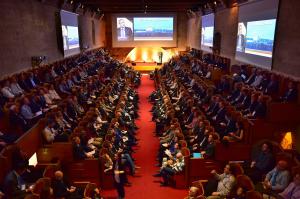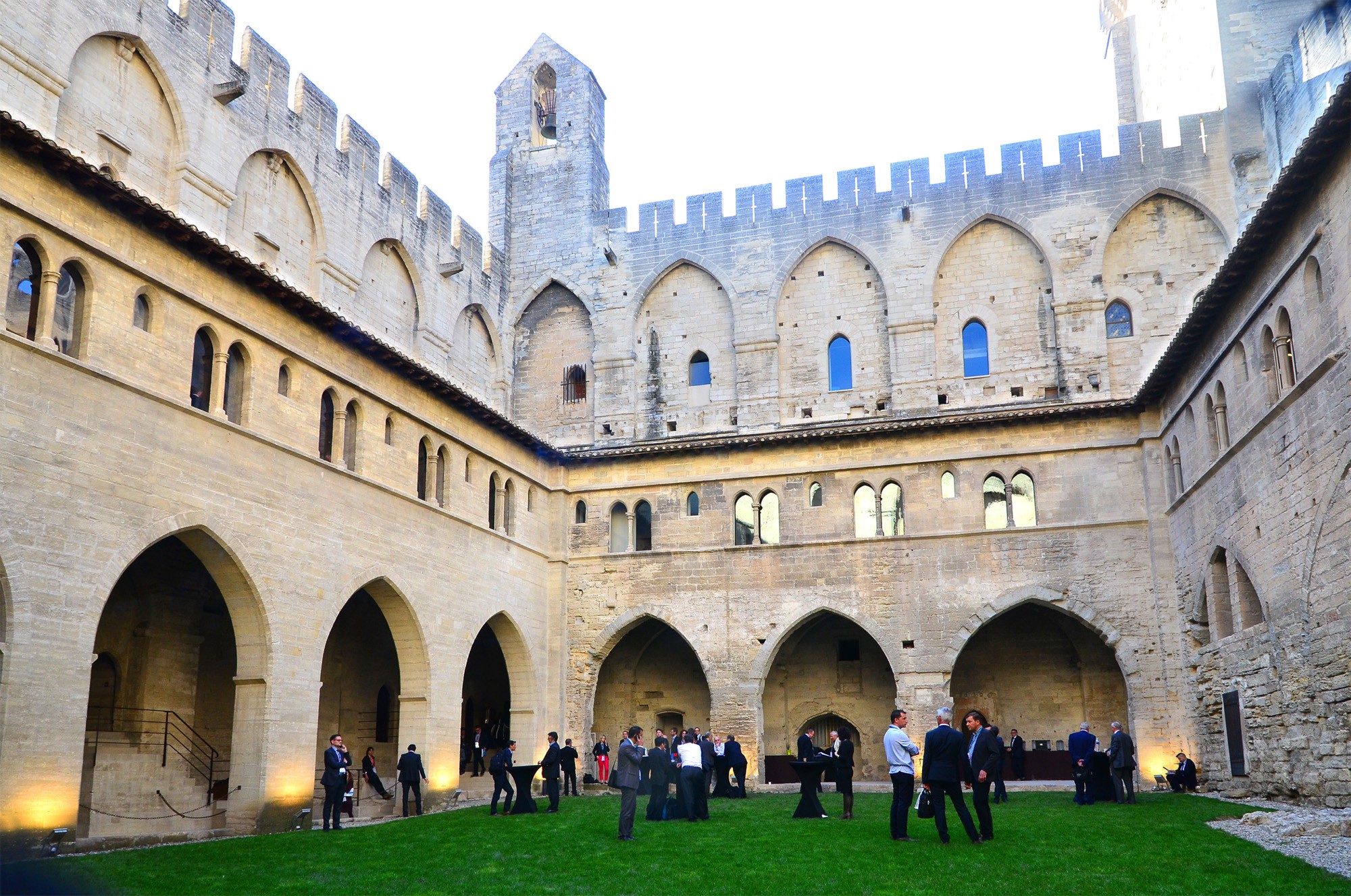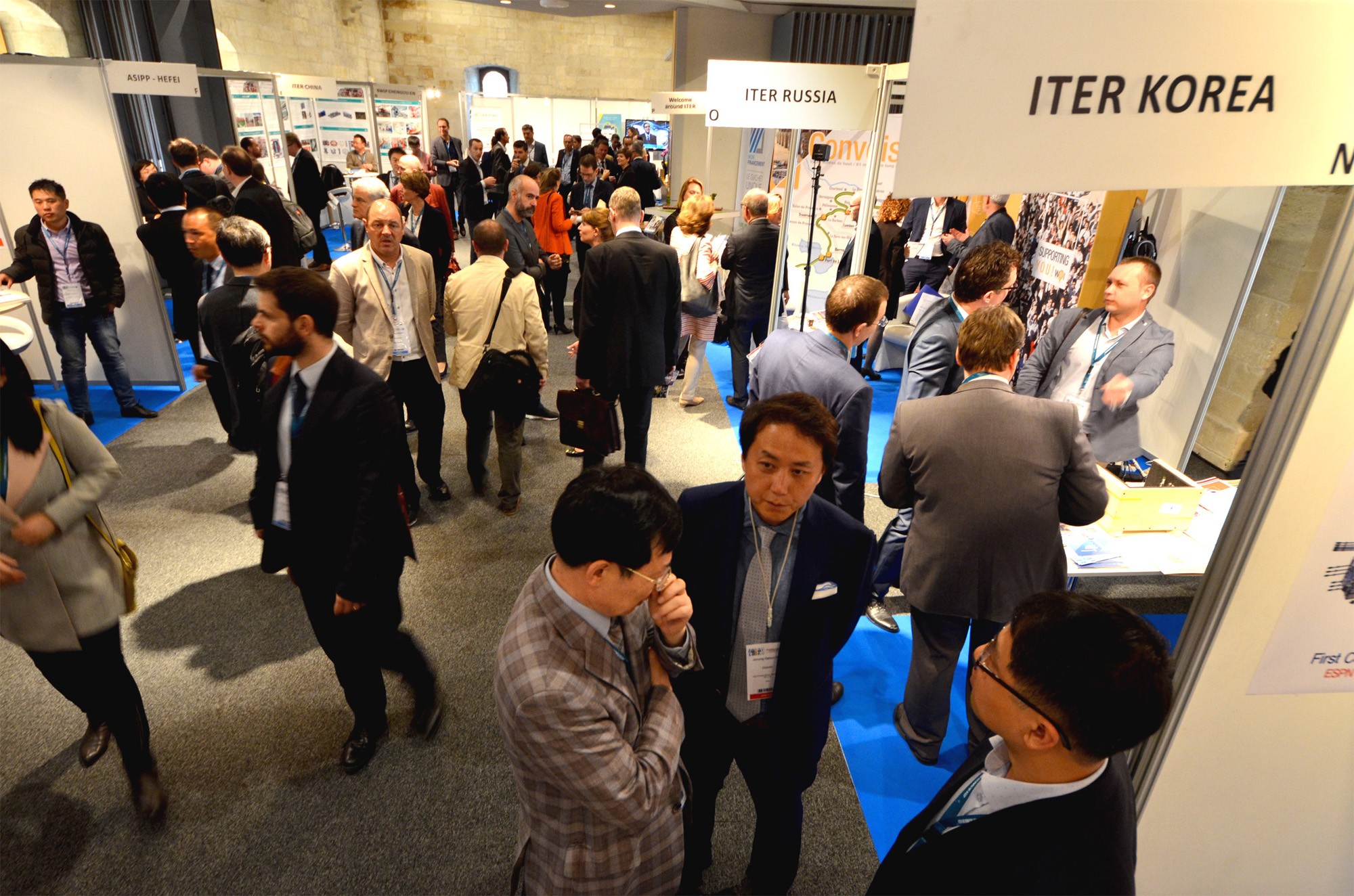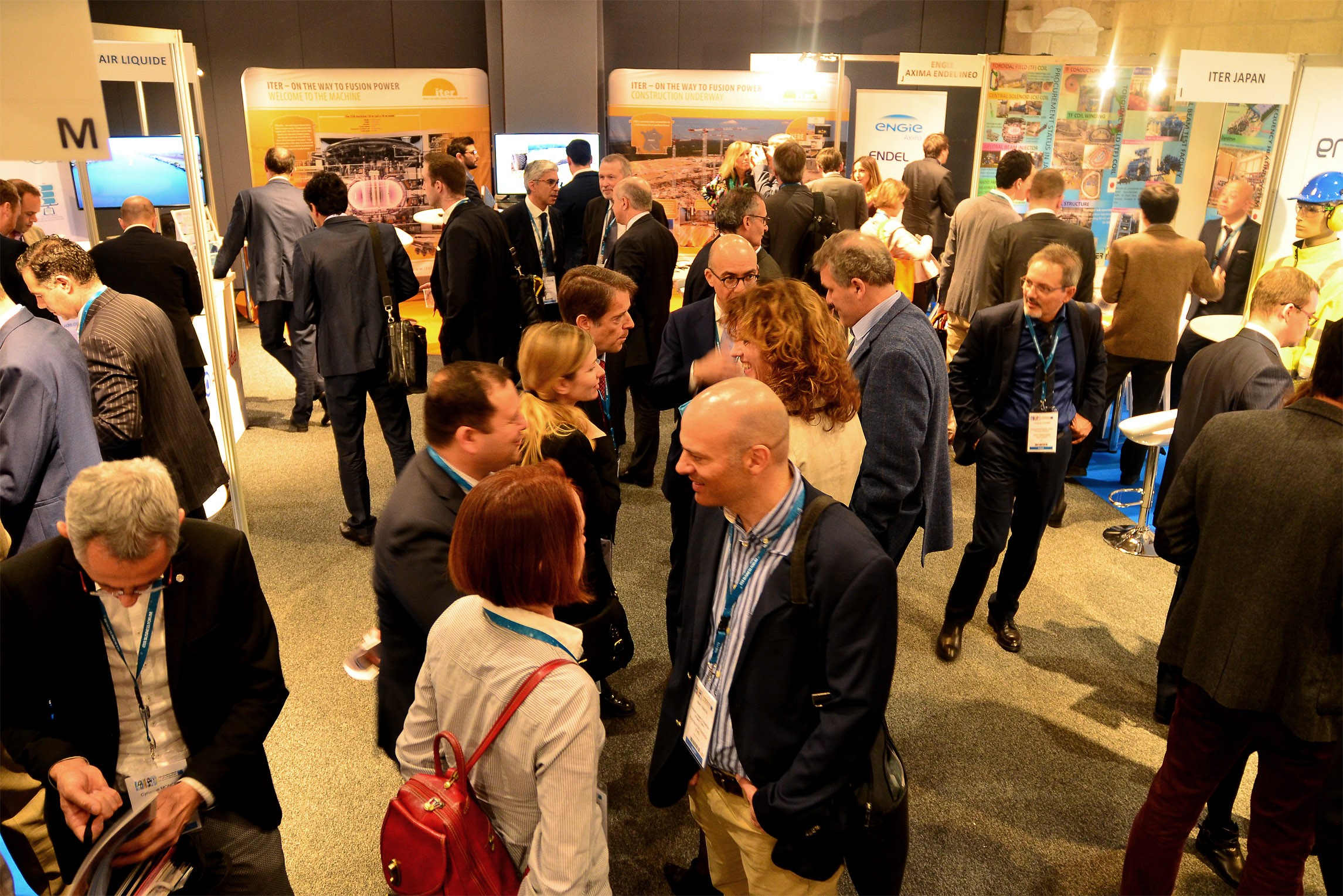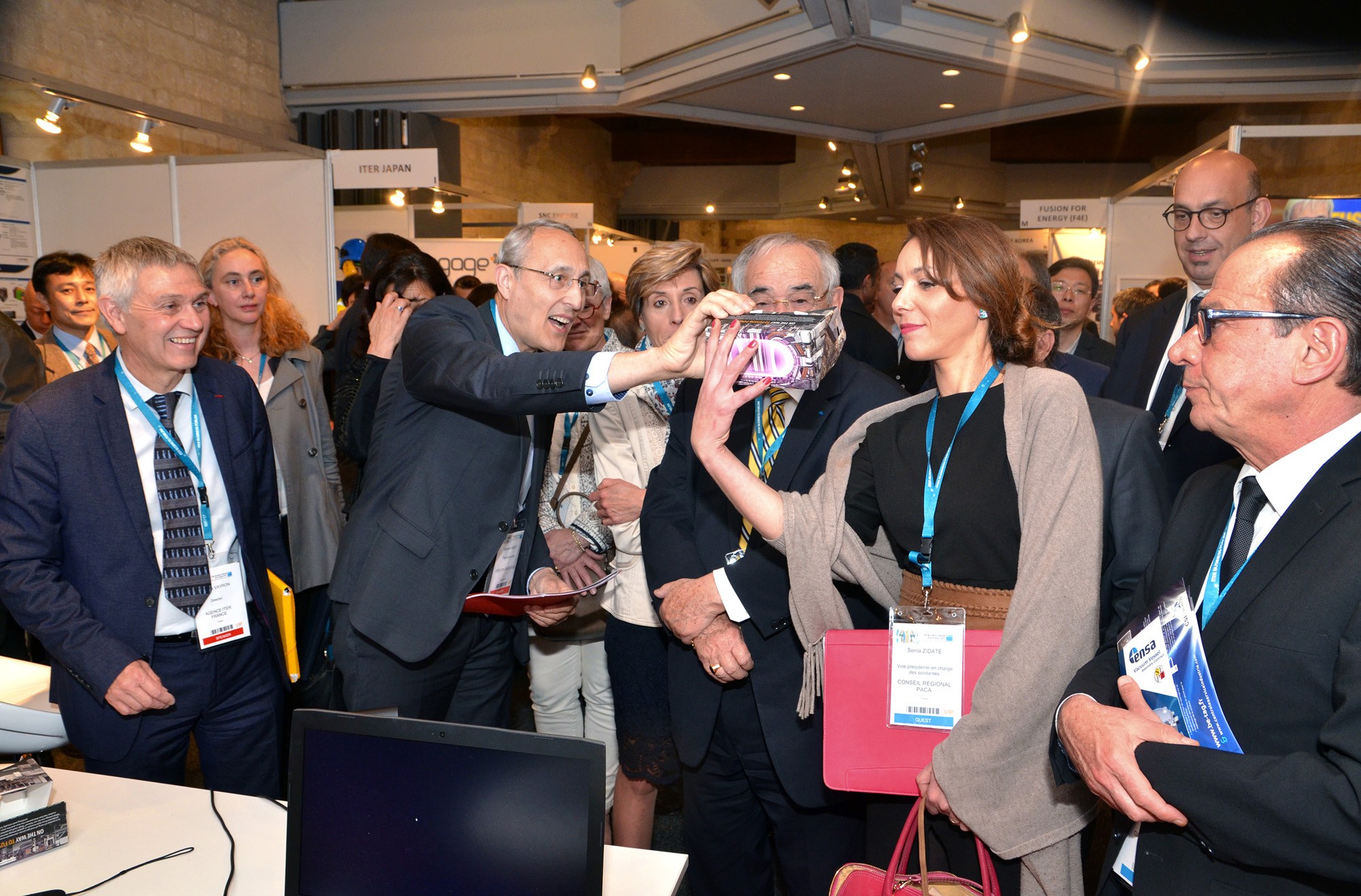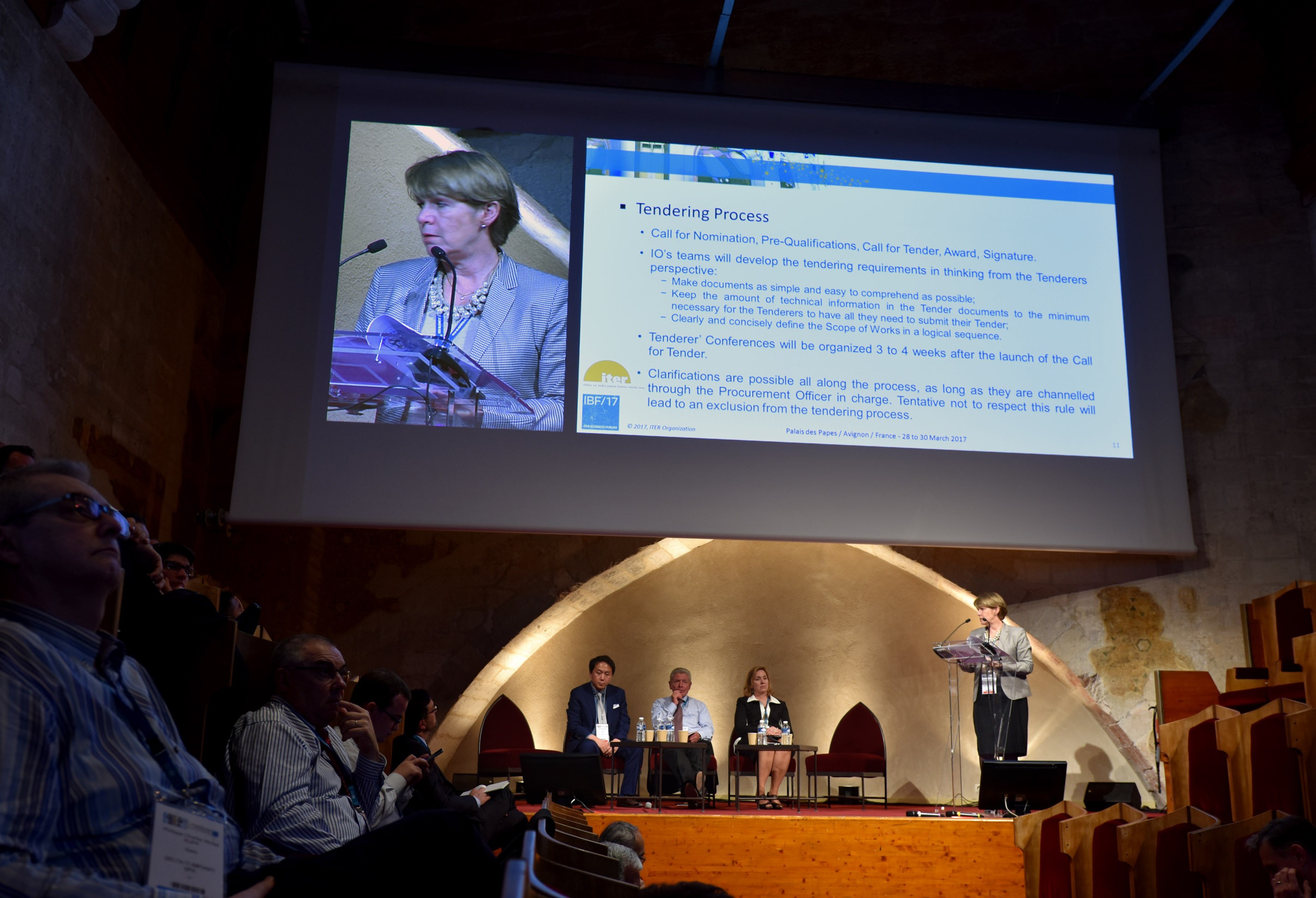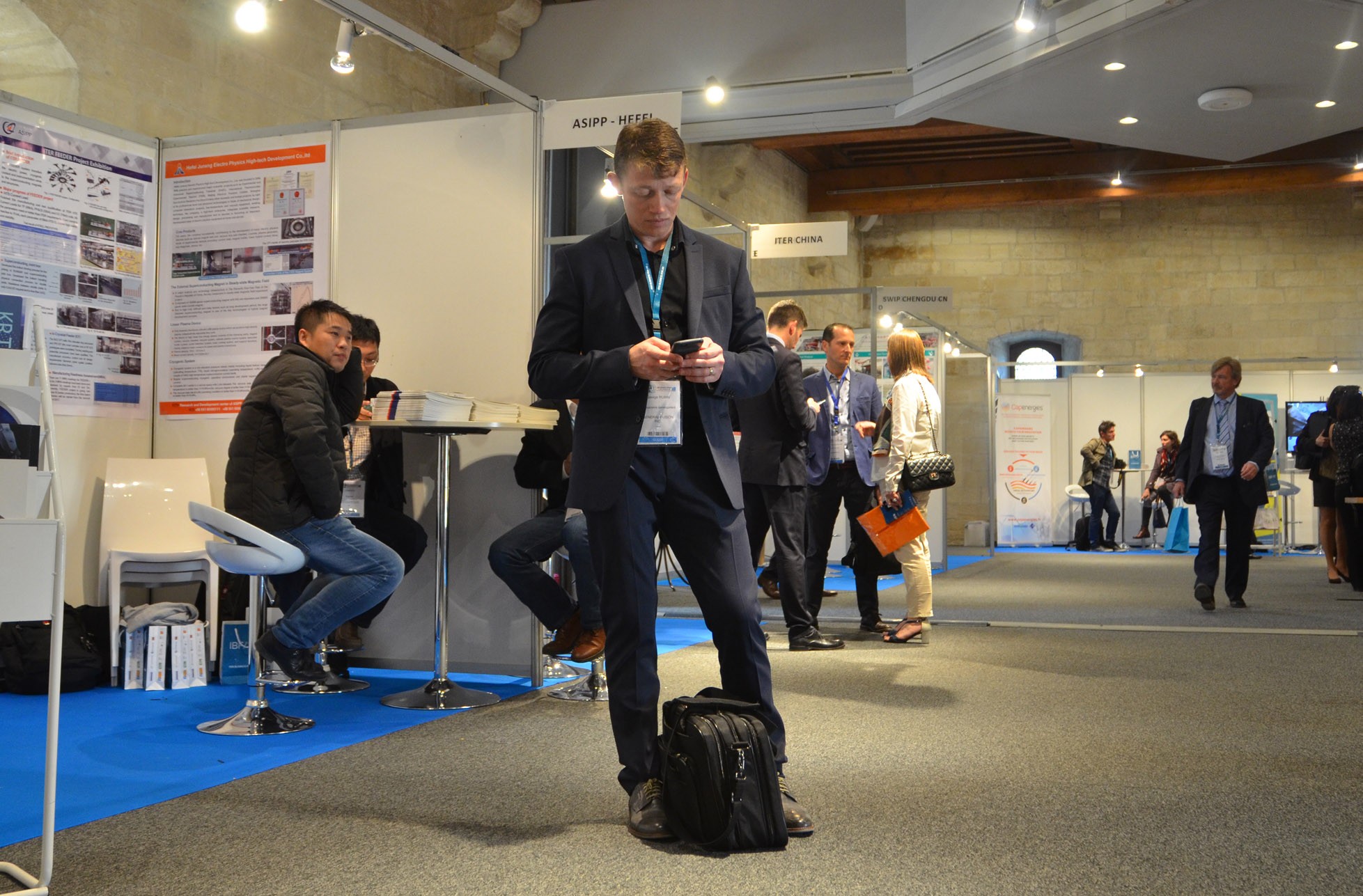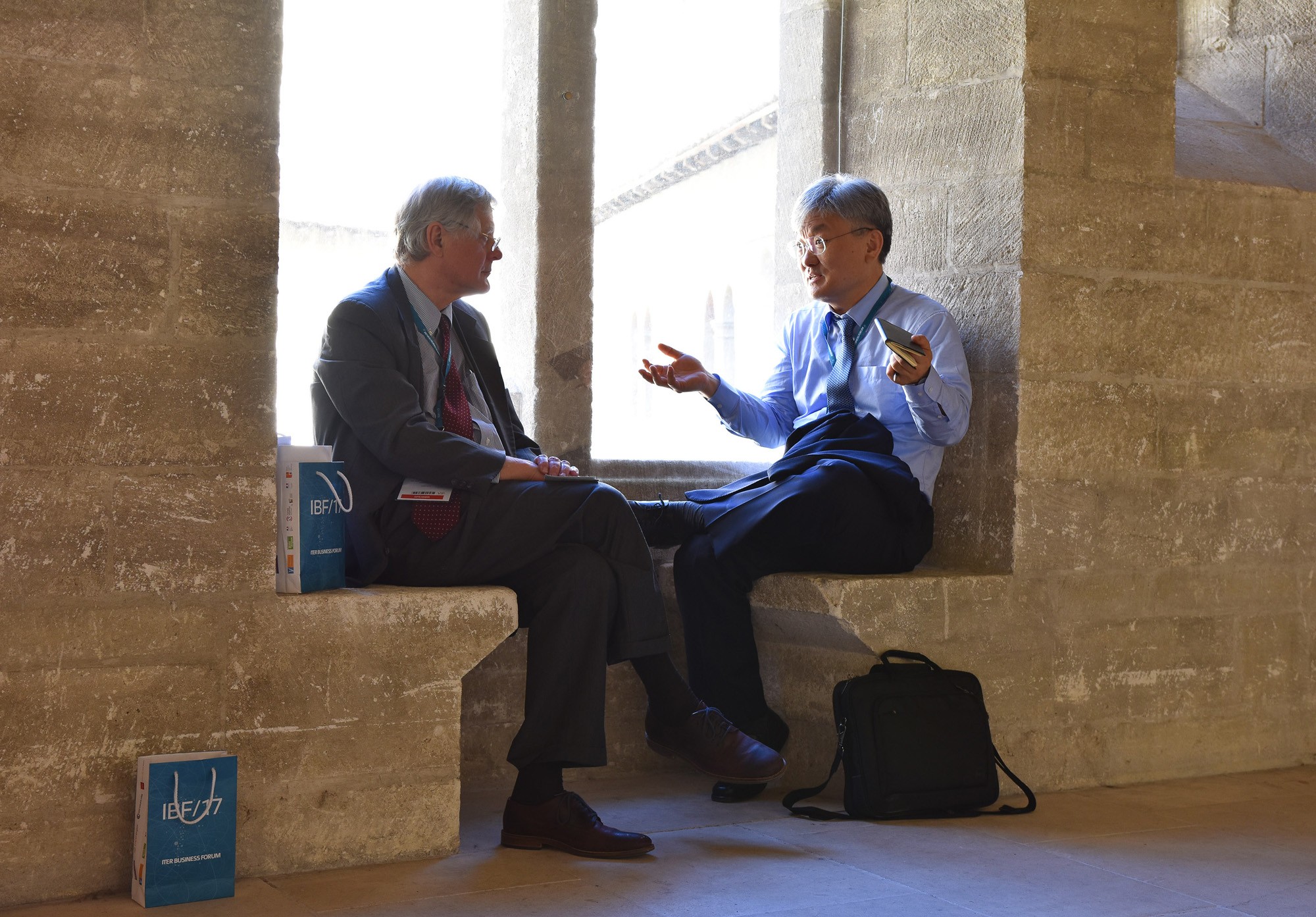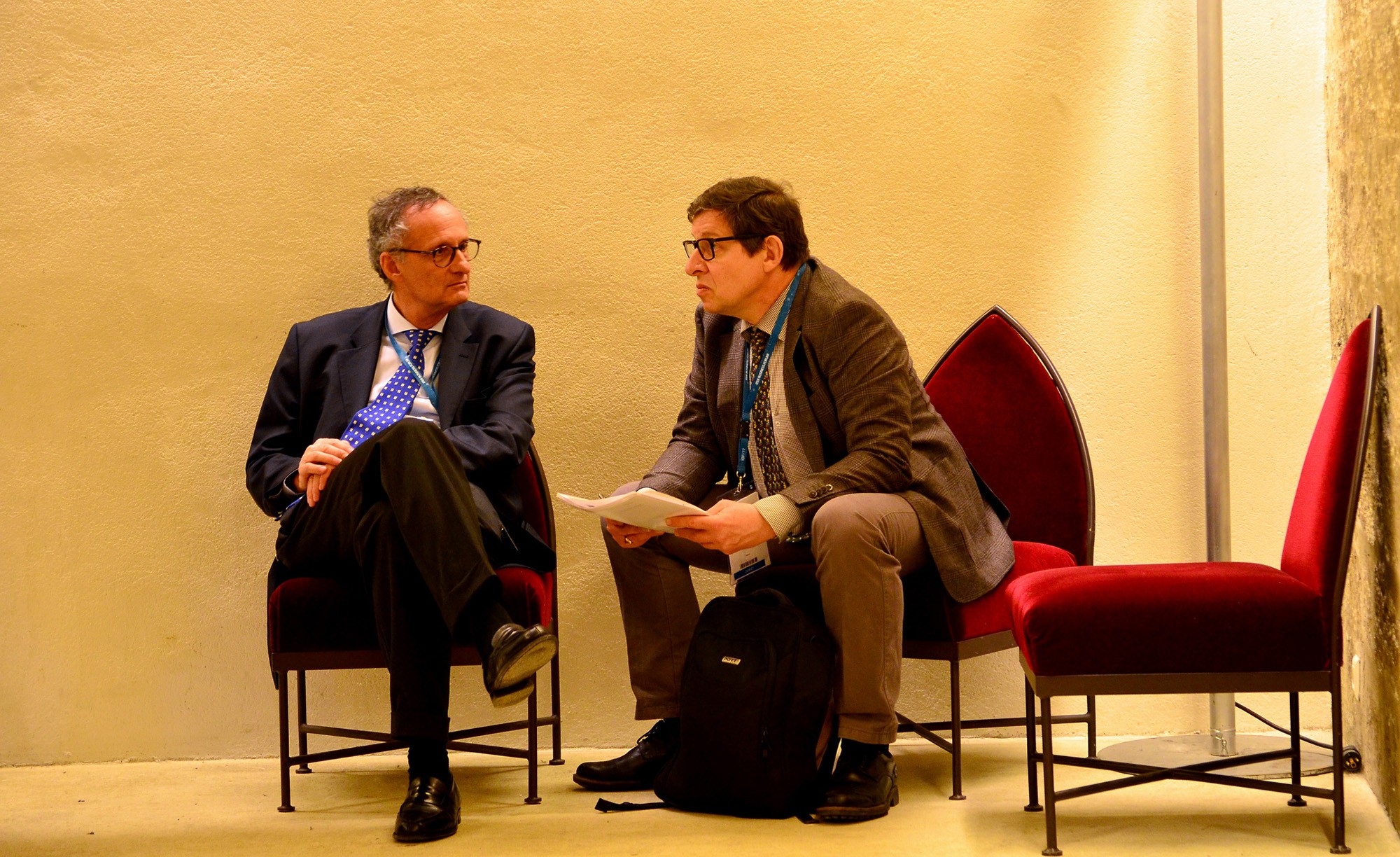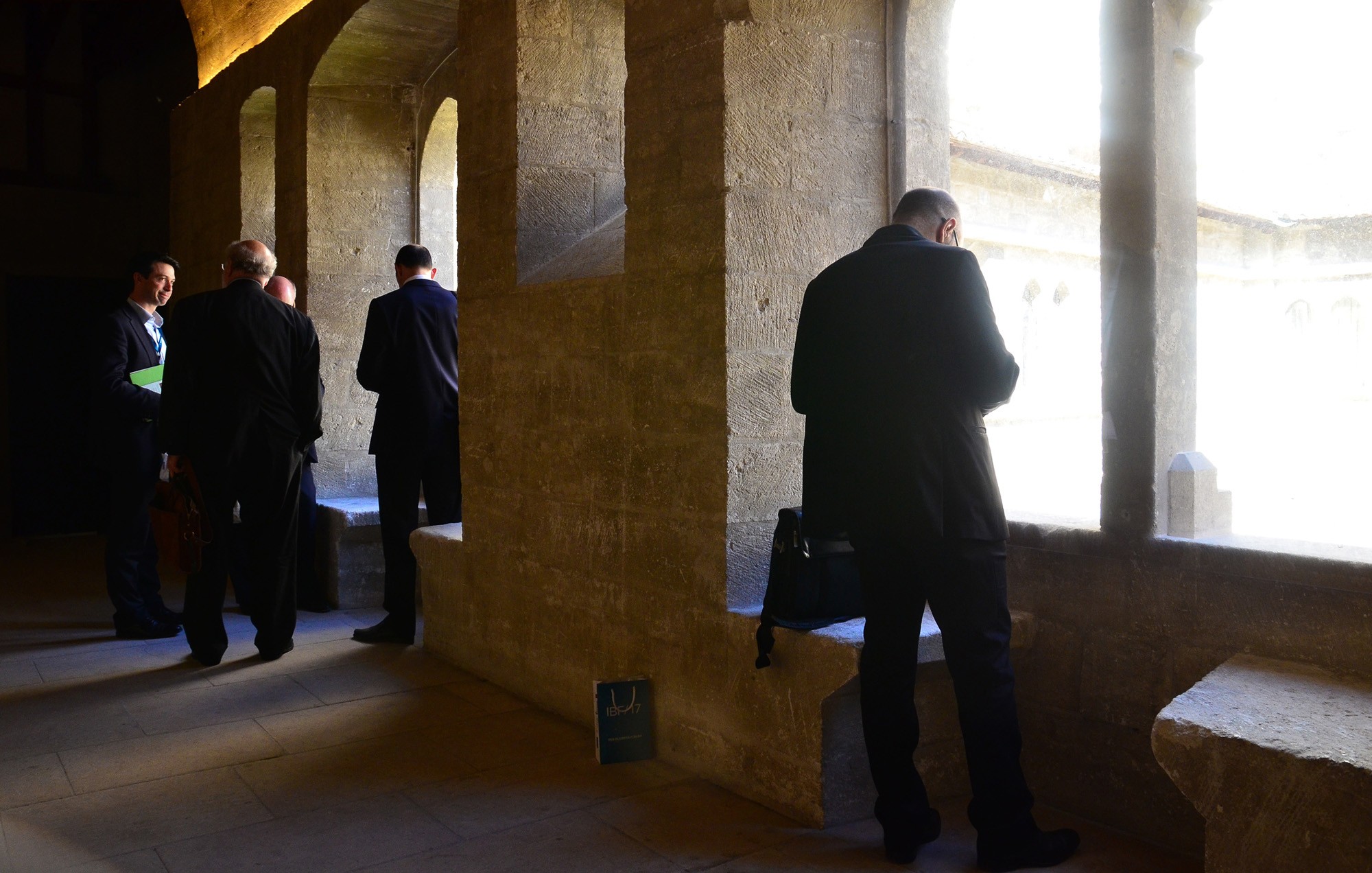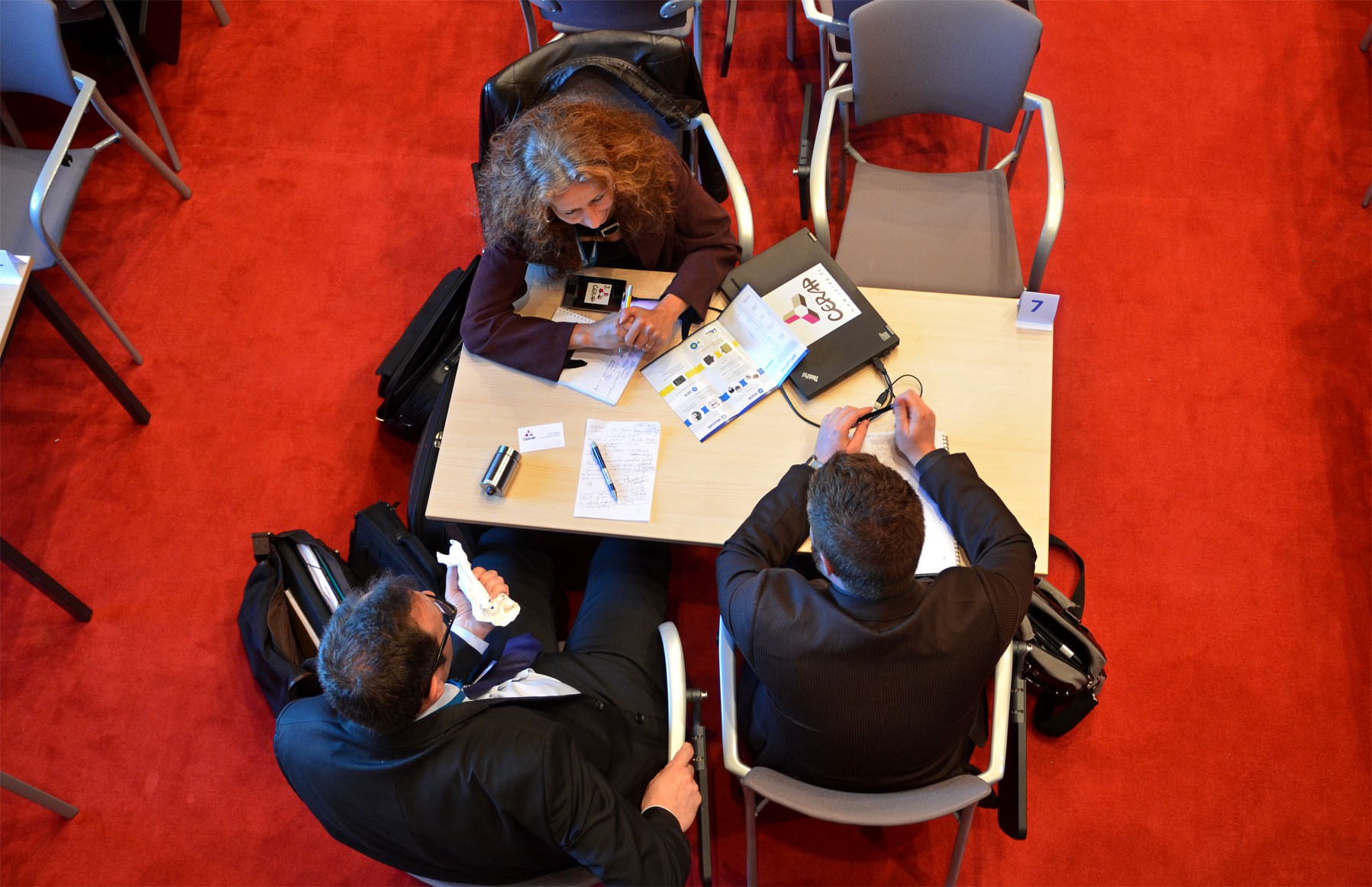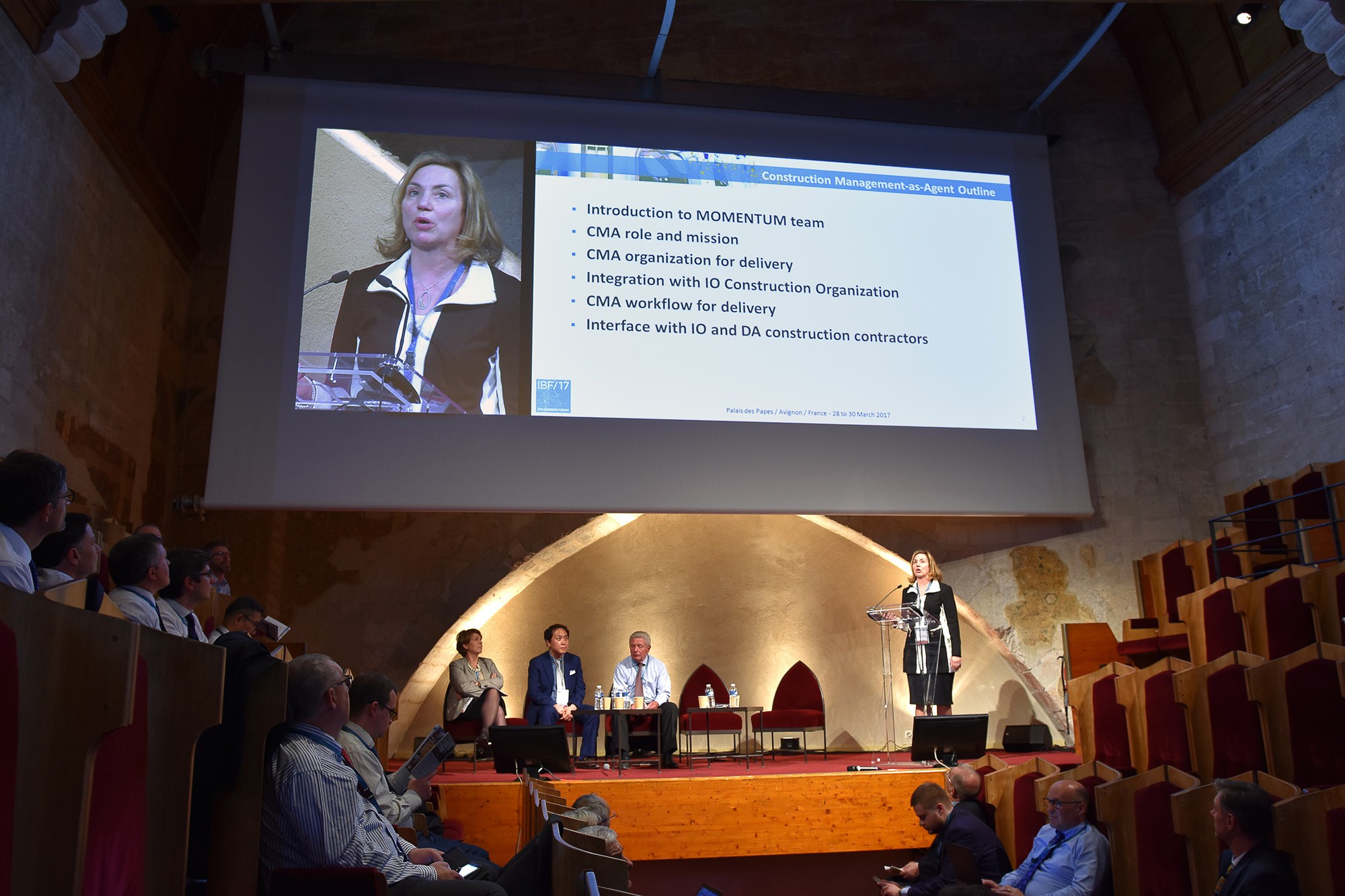Strong support from the industry is vital to the success of ITER," said Jacques Vayron, the director of Agence Iter-France, as he greeted participants on the morning of 29 March in the Conclave chamber. "This is a unique event where research and industry, large and small, can meet to foster the development of new partnerships."
And partnership is the key word for an endeavour that Bernard Bigot, Director-General of the ITER Organization, describes as "among the most ambitious mankind has ever attempted."
Bigot insisted on the necessity of collectively sharing the commitment to making ITER a sound investment "for all our Members and all our partners—business and industry included."
IBF has a lot of merits and one of them is to make the industrial dimension of ITER tangible to the local public—media cover the event, politicians visit the stands, and a "Foreign Investor Prize" is awarded...(1)
And although Avignon is used to hosting large cosmopolitan crowds—particularly during the world-famous theatre festival in July—the presence off-season of more than 1,000 people in and around the Popes' Palace in late March was an event in itself.
Palace employees, municipal police, waiters in sidewalk cafés ... all wished to know what the business forum was about and what ITER was for. When the usual explanations were provided (an artificial Sun, a uniquely complex machine, an unprecedented international collaboration ...) they were received with awe and incredulity.
"Well... there's no stopping progress," summarized a waiter on the Place de l'Horloge.
(1) The "Foreign Investor Prize" was awarded to Rolls Royce Nuclear Field Services, which provides remote handling industrial inspection for ITER.

